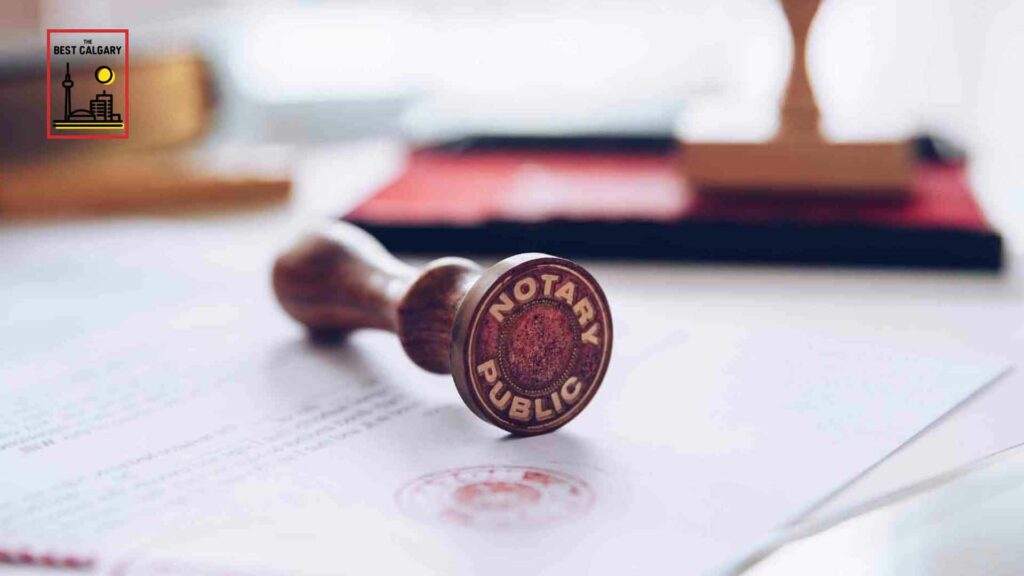
Apostille vs Notary: Understanding the Key Differences
Introduction:
In today’s globalized world, the need for document authentication and verification is paramount. Whether you are planning to study abroad, immigrate to another country, or conduct business internationally, you may encounter two essential processes: apostille and notary services. While both serve the purpose of validating documents, they differ significantly in their scope, recognition, and legal implications.
This comprehensive guide will walk you through the intricacies of apostille vs. notary, providing you with a deep understanding of each process. By the end, you’ll be equipped with the knowledge to make well-informed decisions for your specific document authentication needs.
Apostille: A Powerful Tool for International Document Recognition
An apostille is a specialized certificate attached to a document to ensure its authenticity for use in another country. This unique form of authentication is regulated by the Hague Convention, an international treaty signed by over 100 countries worldwide. The primary objective of the apostille is to facilitate the acceptance of public documents across borders without the need for further legalization.
What is an Apostille and How Does it Work?
An apostille is a document issued by a designated authority in the country where the document was issued. It verifies the signature, seal, or stamp on the original document and confirms the capacity in which the person signing acted. This process aims to make documents legally valid and recognizable in foreign countries without undergoing lengthy bureaucratic procedures.
When is an Apostille Required?
An apostille is required when you need to use public documents, such as birth certificates, marriage licenses, educational degrees, or business documents, in a country that is part of the Hague Convention. It is commonly needed for purposes like international adoption, foreign marriage, employment abroad, or enrollment in foreign educational institutions.
The Hague Convention and Apostille Recognition
One of the significant advantages of obtaining an apostille is its universal recognition among member countries of the Hague Convention. Countries that are party to the Convention must accept an apostille as valid proof of document authenticity. This streamlines the process of document verification, making it more efficient and hassle-free.
The Apostille Process: Step-by-Step
The process of obtaining an apostille involves several steps:
- Identify the Document: Determine which document requires authentication and ensure it is a public document eligible for apostille certification.
- Contact the Competent Authority: Find the designated authority in the issuing country responsible for issuing apostilles. This is often the Secretary of State or the Ministry of Foreign Affairs.
- Submit the Document: Prepare the original document and submit it to the competent authority. They will verify the authenticity of the signature, seal, or stamp on the document.
- Issuance of the Apostille: Once the document is verified, the competent authority will attach the apostille certificate, validating the document for international use.
- Verify Country-Specific Requirements: Confirm the specific requirements of the destination country, as some countries may have additional requirements beyond the apostille.
Advantages of Using an Apostille
- Time-Efficient: The apostille process is generally faster than traditional legalization methods, saving time and effort.
- Cost-Effective: Compared to multiple steps of legalization, the apostille process is often more affordable.
- Simplified Authentication: The Hague Convention’s recognition of apostilles simplifies document authentication across member countries.
Notary Services: Certifying Authenticity Within Borders
While an apostille focuses on international document authentication, notary services primarily serve as a means of certifying the authenticity of documents within a country’s borders. Notaries are licensed officials who act as impartial witnesses, confirming the identity of individuals signing documents and affirming the voluntary nature of the signature.
What is a Notary Public and How Does it Work?
A notary public is an appointed official with legal authority to witness the signing of important documents and administer oaths. Their role is to prevent fraud by ensuring the parties involved are who they claim to be and are willingly entering into the agreement. The notary then adds their seal and signature to the document to certify its legitimacy.

When are Notary Services Required?
Notary services are commonly required for various legal and business documents, such as wills, contracts, power of attorney, affidavits, and property deeds. By having a document notarized, parties can rely on its authenticity and avoid disputes related to identity or consent.
Notary vs. Apostille: Key Differences
The main differences between notary services and apostilles can be summarized as follows:
- Scope: Notary services are generally limited to domestic use, while apostilles are specifically for international recognition.
- Verification Process: A notary verifies the identity and willingness of the signers, whereas an apostille verifies the authenticity of the document itself.
- Recognition: While an apostille is recognized across Hague Convention member countries, notarized documents are only valid within the issuing country.
The Notarization Process: Step-by-Step
The process of notarizing a document typically involves the following steps:
- Document Preparation: Prepare the document that requires notarization, ensuring all necessary information is included.
- Schedule an Appointment: Arrange an appointment with a licensed notary public.
- Identity Verification: At the appointment, all signers must provide valid identification to prove their identity.
- Signing and Affirmation: The document signers will sign the document in the presence of the notary, who will then administer an oath or affirmation.
- Notary Seal and Signature: Once the notary is satisfied with the authenticity of the signature, they will add their official seal and signature to the document.
Advantages of Using Notary Services
- Legal Validity: Notarized documents carry legal validity and can be relied upon in legal proceedings.
- Preventing Fraud: The presence of a notary acts as a safeguard against potential fraud or unauthorized agreements.
- Flexible Use: Notarized documents can be used for various purposes within the country of issuance.
Apostille vs Notary: Making the Right Choice for Your Needs
When determining whether to obtain an apostille or use notary services, it’s essential to consider the specific requirements of your situation. Here are some key factors to help you make the right choice:
1. Type of Document
Consider whether your document is intended for use within your country or if it requires international recognition. Notarized documents are suitable for domestic use, while apostilles are essential for documents intended for use abroad.
2. Destination Country
If your document needs to be used in a country that is a member of the Hague Convention, obtaining an apostille is likely the most efficient option. For non-member countries, notarization may be sufficient, but it’s essential to verify specific requirements.
3. Legal Implications
Apostilles and notarized documents have different legal implications. If you need your document to be legally valid and recognized in multiple countries, an apostille is the appropriate choice.
4. Time Constraints
Apostilles are generally quicker to obtain than traditional legalization processes, making them a better option when time is a crucial factor.
5. Budget Considerations
While apostilles may offer time and cost savings for international use, notary services are generally more affordable for documents intended for domestic use.
FAQs (Frequently Asked Questions)
Q: What is the cost difference between obtaining an apostille and notarizing a document? A: The cost of obtaining an apostille may vary depending on the issuing country and the type of document. Generally, notarization is more budget-friendly for domestic use, while apostilles can be cost-effective for international recognition.
Q: Can I use a notarized document in a country that is part of the Hague Convention? A: While notarized documents are valid within the issuing country, they may not be recognized in other Hague Convention member countries. For international use, it’s best to obtain an apostille.
Q: Can I use an apostille for any type of document? A: Apostilles are typically used for public documents, such as birth certificates, marriage licenses, and educational degrees. Private documents, like wills or contracts, may not require an apostille.
Q: Are there any exceptions for using notarized documents in foreign countries? A: Some countries may accept notarized documents from foreign countries without requiring an apostille. However, it’s essential to verify the specific requirements of the destination country.
Q: Is an apostille necessary for every country outside my own? A: No, an apostille is only required for countries that are members of the Hague Convention. For non-member countries, other forms of document legalization may be necessary.
Q: Can a document have both a notarization and an apostille? A: No, a document typically has either a notarization or an apostille, depending on its intended use. Combining both forms of authentication may lead to confusion and potential legal issues.
Conclusion:
In summary, understanding the differences between apostille and notary services is crucial for anyone dealing with international document authentication. An apostille offers the advantage of universal recognition among Hague Convention member countries, making it ideal for documents intended for use abroad. On the other hand, notary services provide a reliable means of certifying documents for domestic use within the issuing country.
By considering the type of document, destination country, legal implications, time constraints, and budget, you can make informed decisions on whether to obtain an apostille or use notary services. Both processes play essential roles in ensuring the authenticity and validity of your documents, allowing you to navigate the complexities of international transactions and legal processes with confidence.
Remember, the choice between apostille vs. notary depends on your specific needs, and consulting with legal experts or authorities in the destination country can provide further guidance for your unique situation.

